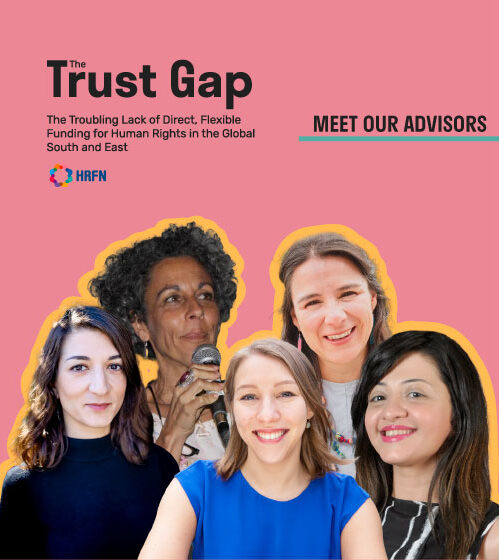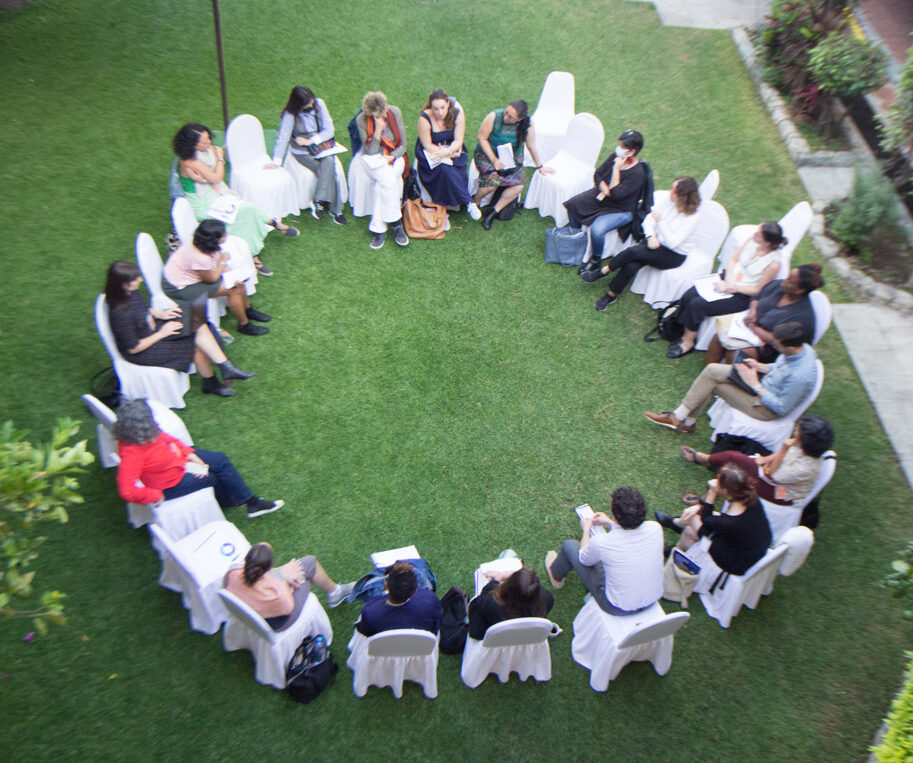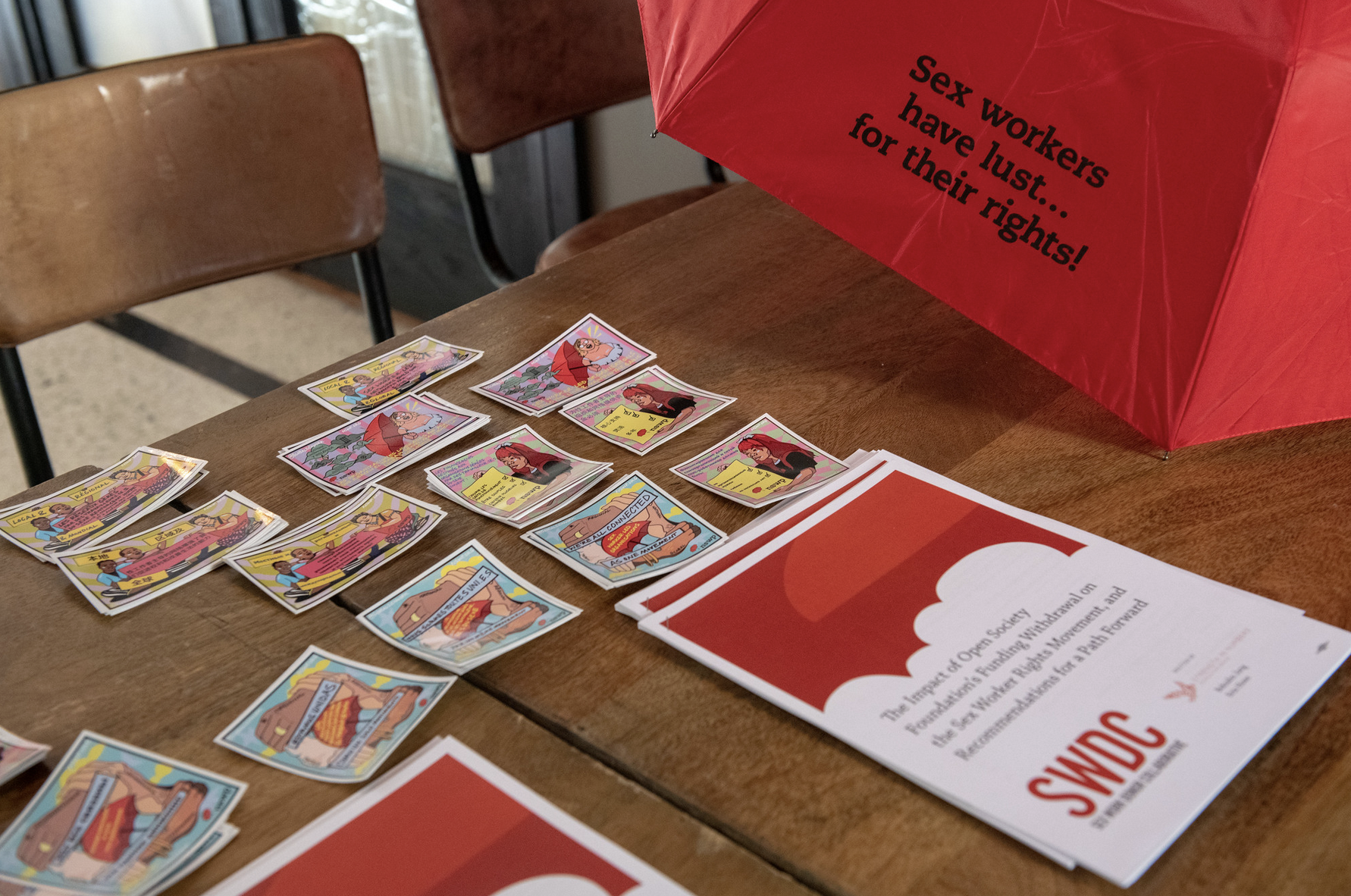
Chronicles of Crises Foretold: How funders can prepare, respond, and build resilience in human rights crises
By Kellea Miller, HRFN Deputy Executive Director
Between December 2021 and March 2022, HRFN and PSFG led a learning journey to ask how funders can better prepare for crisis. If you are interested in joining the conversation, contact Kellea Miller at community@hrfn.org.
In the last year alone, we have witnessed a broad spectrum of emergencies that immediately and indelibly impact human rights.
The current war in Ukraine. The takeover of the Taliban in Afghanistan, following years of war. Coups in Myanmar and Haiti. The deliberate shuttering of civil society organizations in Uganda leading up to the election. The far-reaching impacts of a global pandemic and of climate change.
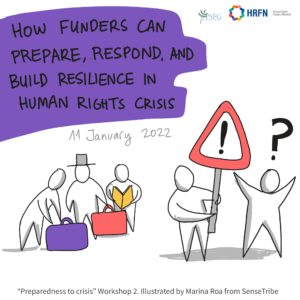
These events are not isolated or unique. They are characteristic of a world in which only three percent of the world’s population lives in countries where civic space is defined as “fully open,” where the climate crisis will shape our natural world going forward, and where struggles for democracy and liberation will continue to be met with backlash. They also do not emerge overnight. We can look back and see the warning signs long before the state of emergency.
Learning Together
At HRFN, we saw a shift in the wake of the Taliban takeover in Afghanistan. Many of our members wanted to organize quickly and coordinate resources. A small group, led by advisors at Open Society Foundations and Ford Foundation, also started to ask how we could prepare for crisis in a much more sustained and effective way.
Together with the Peace and Security Funders Group and seven co-sponsoring foundations,1 we launched a three-part learning journey, Chronicles of Crises Foretold: How funders can prepare, respond, and build resilience in human rights crises. With more than 100 funders, we have had real, uncomfortable, and vital discussions about what human rights and peace and security funders could do in our own institutions to more effectively support civil society under threat.
In our first session in December, we talked with Elissa Jobson about a new era of global conflict from the perspective of The International Crisis Group. Jean Kemitare from Urgent Action Fund – Africa spoke about emergency response funding and close collaboration with movements. Steve Eberlein bridged his experience in Sri Lanka after the 2004 tsunami and his current work in corporate preparedness. Together, we explored what it would take to build a culture of preparedness into our institutions. We expressed the need for sustained relationships of trust that center activists and movements long before crisis. And we began to map early warning systems from within and beyond philanthropy.
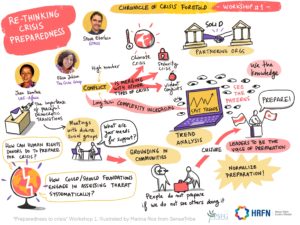
In the second session in January, we pushed ourselves outside of our comfort zone and spoke with David Fowler, a captain in the U.S. military, about disaster training exercises he runs. He issued the call to practice practice practice – so that when the emergency comes, it is a drill, not a crisis. The session ended with a call from funders to ask ourselves: What can we do together that we can not do separately?
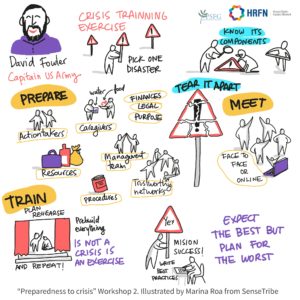
Our third session two weeks ago was shaped by Russia’s invasion of Ukraine. While much immediate coordination is underway, this session was a chance to consider how the current crisis in Ukraine could inform long-term and practical strategies. In conversation, we started to map out the different roles funders in our ecosystem can play before, during, and after a crisis. We also addressed the challenge of continuing to support civil society and reaching those in the most need, even when the world’s attention has shifted.
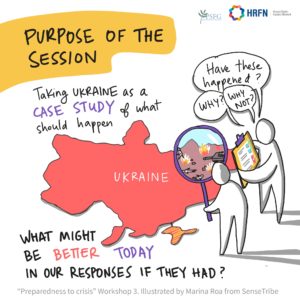
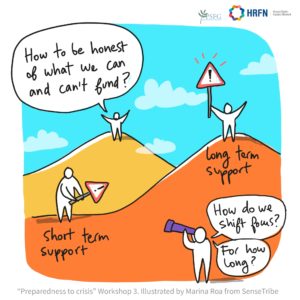
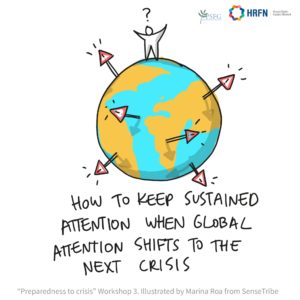
There is much more to come. Over the next several months, we will be sharing the findings and practices that emerged from this learning series. HRFN will also be hosting a community of practice for HRFN members as part of our Human Rights Defenders and Closing Civic Space priority area. At HRFN, we are relentlessly committed to supporting movements for justice and human rights and will continue to create spaces where funders can collaborate, take risks, and boldly support human rights.
1. A special thanks to our co-hosts, PSFG, and to the co-sponsors of Chronicle of Crisis Foretold: AJWS, Ford Foundation, Funders’ Initiative for Civil Society (FICS), Open Society Foundations (OSF), Wellspring Philanthropic Fund, Urgent Action Fund for Women’s Human Rights, and Urgent Action Fund – Africa.
Photo by Gayatri Malhotra on Unsplash
